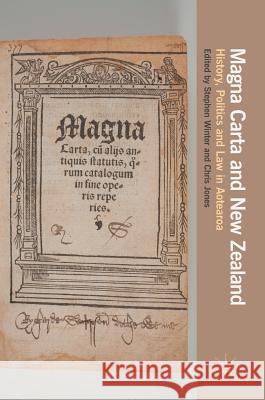Magna Carta and New Zealand: History, Politics and Law in Aotearoa » książka
topmenu
Magna Carta and New Zealand: History, Politics and Law in Aotearoa
ISBN-13: 9783319584386 / Angielski / Twarda / 2017 / 288 str.
Kategorie BISAC:
Wydawca:
Palgrave MacMillan
Język:
Angielski
ISBN-13:
9783319584386
Rok wydania:
2017
Wydanie:
2017
Ilość stron:
288
Waga:
0.54 kg
Wymiary:
15.6 x 21.9 x 2.5
Oprawa:
Twarda
Wolumenów:
01
Dodatkowe informacje:
Wydanie ilustrowane











